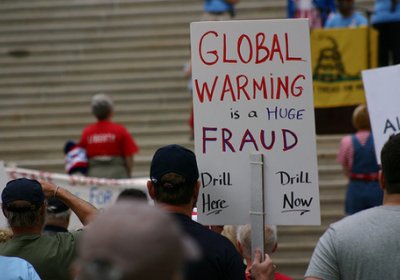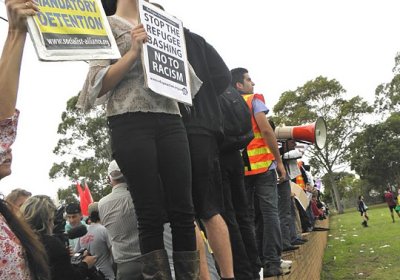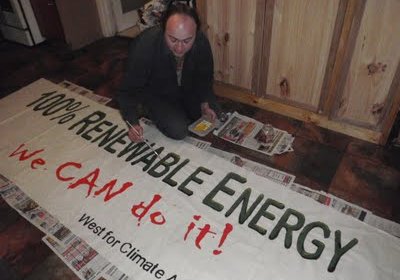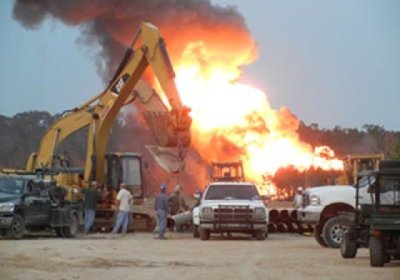The recent figures on CO2 emissions are sobering. Despite the fact that the world has suffered a terrible recession, emissions are still rising.
In essence, all the efforts to tackle climate change have simply slowed the rise a little rather than reverse it.
The problem is that the solutions to climate change put forward at international conferences like Copenhagen and Cancun dare not deal with the real root cause of climate change — our current economic system.
Analysis
Australian climate scientists and researchers are subject to a rising level of hate mail, abuse and death threats from climate change deniers.
More than 30 researchers told the June 4 Canberra Times “they are receiving a stream of abusive emails threatening violence, sexual assault, public smear campaigns and attacks on family members”.
New and contradictory details of the Australia-Malaysia refugee exchange have been brought to light, as the federal Labor government grows closer to sealing the fate of up to 800 asylum seekers.
Evidently we are making progress as a nation in addressing the Indigenous development problem.
On February 9, the prime minister delivered the Closing the Gap Prime Minister’s Report 2011. Progress is apparently happening: not according to any statistics, but to the powerful government public relations machine.
In fact, the prime minister could provide little evidence about gap closing, except to tell us that the statistics are not readily available despite a commitment of nearly $50 million to this task.
There are alternatives to the federal government’s NT intervention into Aboriginal communities, and some of the key ones have been brought together in a new statement that has won the support of Aboriginal community leaders and other groups and individuals.
The statement, “Rebuilding from the Ground Up: An Alternative to the NT Intervention”, is available on the Jumbunna Aboriginal Education Centre website.
Marrickville Mayor Fiona Byrne has received a letter of support from South African anti-apartheid campaigner Archbishop Desmond Tutu. The letter appears below.
* * *
Dear Mayor Fiona Byrne,
We in South Africa, who both suffered Apartheid and defeated it, have the moral right and responsibility to name and shame institutionalized separation, exclusion, and domination by one ethnic group over others. In my own eyes I have seen how the Palestinians are oppressed, dispossessed and exiled.
Blind Carbon Copy, June 4 — World Environment Day on June 5 was the Say Yes Australia rally called by an alliance of unions and NGOs like GetUp.
A large number of environmentalists, including the Greens party, rightly rejected the last attempt of the government to set a carbon price, the “Carbon Pollution Reduction Scheme”. It was shonky, riddled with loopholes big enough for a diesel-spewing truck to drive through.
Green Left Weekly’s Timothy Lawson spoke to Jim Richardson, a member of Sydney Solidarity for Bradley Manning, about the group’s campaign work.
* * *
Can you tell me about the Sydney Solidarity for Bradley Manning group?
The Stop the War coalition Sydney released the statement below on June 2.
* * *
“We will be there seeing the mission through” — Australian troops will stay in Afghanistan until the “job” is done. This was the response of Prime Minister Julia Gillard to the May 23 death of Sergeant Brett Wood, aged 32.
It is the standard response of Australian governments to casualties in the Afghanistan war.
The same response was given following the deaths seven days later of Lieutenant Marcus Case, 27, and Lance Corporal Andrew Jones, 25.
A big ad campaign — “Australia says yes” — began this month to support the federal government’s proposed carbon tax. The campaign has been organised by a coalition of peak environment and social justice organisations including GetUp!, the Australian Conservation Foundation and the Australian Council of Trade Unions.
One of the people featured in the advertisements is actor Cate Blanchett. Her presence attracted the ire of conservative politicians and commentators as soon as the commercials aired.
Alice Springs is a town unlike any other and to an outsider its racial tensions are noticeable. Walking through the shopping centre one sees security guards tell Aboriginal people to move on when they are window shopping.
Poverty and homelessness are visible — and visibly black.
It has always been a town that has struggled with dealing with this visible poverty — and the less visible disadvantage of the communities in the town camps.
It has been back in the spotlight with a rise in social problems caused by an influx of Aboriginal people from other places.
In the land of desperate excuses, coal seam gas is king. The new boom industry of the Queensland and New South Wales hinterlands contaminates ground and surface waters, while taking rich farmland out of food production.
- Previous page
- Page 446
- Next page











